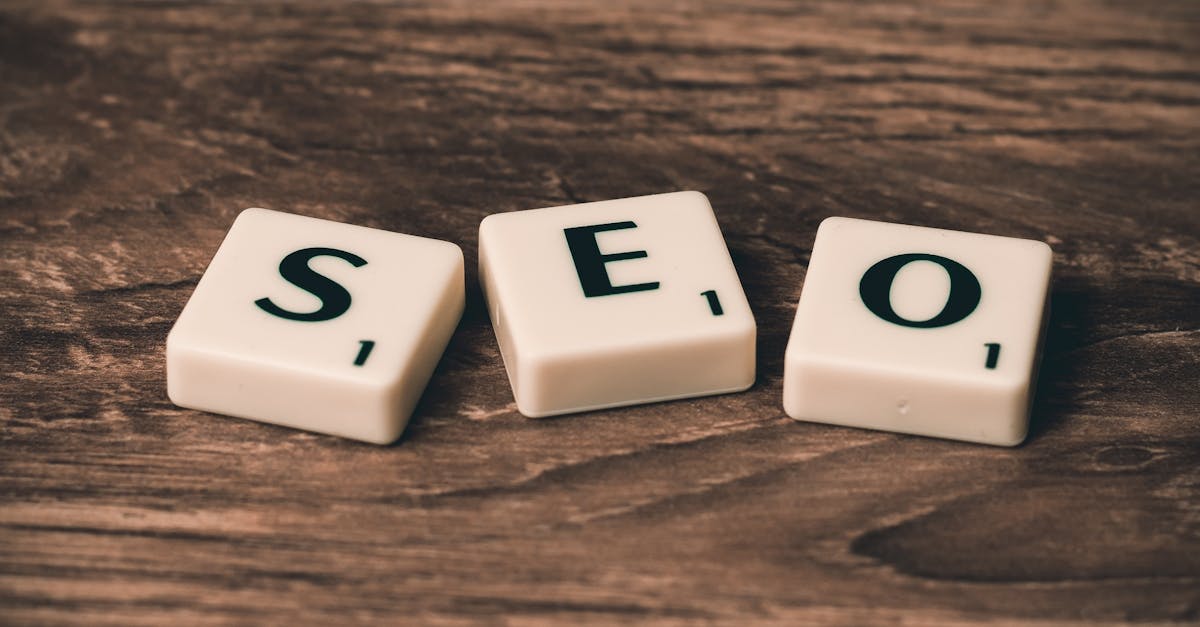
Table Of Contents
Choosing the Right Platform for PPC
When embarking on Pay-Per-Click (PPC) Advertising, selecting the right platform is a crucial step that can significantly influence your campaign's success. Various platforms offer distinct advantages tailored to different business goals. Google Ads stands out for its expansive reach and robust targeting options, allowing advertisers to tap into a vast audience actively searching for products or services. Additionally, social media platforms like Facebook and Instagram provide unique opportunities for visually engaging ads and audience segmentation based on interests and behaviours.
Understanding the nuances between these platforms enables you to align your advertising strategy with your target audience. For instance, Google Ads is highly effective for capturing demand when potential customers are already searching, while social media ads excel in brand awareness and engaging users at different stages of the purchasing journey. This differentiation helps advertisers make informed decisions that influence budget allocation and ad messaging, ultimately enhancing overall PPC effectiveness.
Comparing Google Ads and Social Media Ads
When considering Pay-Per-Click (PPC) advertising, Google Ads and social media ads each offer distinct advantages suited to different marketing goals. Google Ads primarily caters to search intent; users actively look for specific products or services. This means that advertisers can reach potential customers at the moment they are ready to make a decision. The targeting options available enable advertisers to use keywords to attract a highly relevant audience, often resulting in increased conversion rates.
On the other hand, social media ads excel in brand awareness and audience engagement. Platforms like Facebook, Instagram, and Twitter allow advertisers to reach a broad audience based on interests, demographics, and online behaviours. This visual and interactive medium can effectively capture attention and generate interest in products or services. While conversions might be lower in direct comparisons, social media ads foster community building and can effectively nurture leads through engaging content.
Crafting Effective Ad Copy
Effective ad copy is crucial in Pay-Per-Click (PPC) Advertising. It serves as the first impression potential customers will have of your brand. Clarity and conciseness should be prioritised, ensuring the message conveys the value of the product or service immediately. Highlighting unique selling points helps distinguish your ad from competitors.
Incorporating a strong call to action encourages users to engage further. Phrases like "Shop Now" or "Sign Up Today" can create urgency, prompting a quicker response. Additionally, utilising keywords relevant to your audience increases the chances of your ad appearing in search results. A/B testing different versions of your ad can also provide insights into what resonates best with your target demographic.
Tips for Writing Compelling Headlines
Headlines play a crucial role in capturing attention and driving clicks in Pay-Per-Click (PPC) Advertising. A strong headline should be clear, concise, and convey the core benefit of the product or service. Including numbers or asking questions can pique interest, making readers want to learn more. Emphasising urgency or exclusivity can also effectively compel users to engage with your ad.
Utilising keywords relevant to your audience enhances headline visibility in search results. Personalising the message by addressing the reader directly can create a connection, making the ad feel more relevant to their needs. Testing different variations is important, as small changes in wording can significantly impact click-through rates. Focus on what sets your offering apart while maintaining a consistent tone that aligns with your brand’s voice.
The Importance of Landing Pages
Landing pages play a crucial role in the success of Pay-Per-Click (PPC) Advertising campaigns. Once users click on an ad, they expect a seamless experience that aligns with their initial interest. A well-designed landing page can enhance user engagement and provide the necessary information that encourages visitors to take action, whether that’s making a purchase or signing up for a newsletter.
Optimising landing pages for conversions is essential for any PPC strategy. This includes ensuring that the page loads quickly, features compelling visuals, and adheres to a clear call-to-action. By focusing on user experience and relevancy, businesses can improve their return on investment and make the most out of their advertising spend.
Optimizing Your Page for Conversions
Optimising your landing page is crucial for maximising the effectiveness of your Pay-Per-Click (PPC) Advertising campaigns. A well-designed landing page should align closely with your ad copy. This ensures that visitors find what they expect when they click through. Clear and concise messaging, along with a strong call to action, guides users toward completing the desired action, such as making a purchase or signing up for a newsletter.
User experience also plays a significant role in conversions. Ensure your landing page loads quickly and is mobile-friendly to cater to all potential visitors. Utilising engaging visuals and a simple layout can help capture attention and convey your message effectively. Additionally, consider A/B testing various elements of the page to pinpoint what resonates most with your audience. By prioritising these factors, you can significantly improve the conversion rate from your PPC campaigns.
FAQS
What does PPC stand for?
PPC stands for Pay-Per-Click, which is an online advertising model where advertisers pay each time a user clicks on their ad.
How do I choose the right platform for PPC?
Choosing the right platform involves considering your target audience, advertising goals, and budget. Google Ads is ideal for search-based advertising, while social media platforms like Facebook and Instagram are great for visually-driven campaigns.
What are Google Ads and Social Media Ads?
Google Ads are paid advertisements that appear on Google’s search engine results pages, while Social Media Ads are promotional content displayed on social media platforms like Facebook, Instagram, and Twitter.
Why is ad copy important in PPC?
Ad copy is crucial because it directly influences the click-through rate and conversion rate. Effective ad copy captures attention and encourages users to take action, making it essential for a successful PPC campaign.
What makes a compelling headline for PPC ads?
A compelling headline should be clear, concise, and relevant to the target audience. It should also include strong keywords, evoke curiosity, or offer a solution to a problem to entice users to click.
How do landing pages affect PPC success?
Landing pages play a critical role in PPC success as they are where users land after clicking your ad. An optimised landing page aligns with your ad’s message and provides a seamless user experience, increasing the likelihood of conversions.
What are some tips for optimising landing pages for conversions?
To optimise landing pages for conversions, ensure they have a clear call-to-action, load quickly, are mobile-friendly, and include persuasive content that reflects the ad's promise. Additionally, use A/B testing to refine elements based on user behaviour.

















































